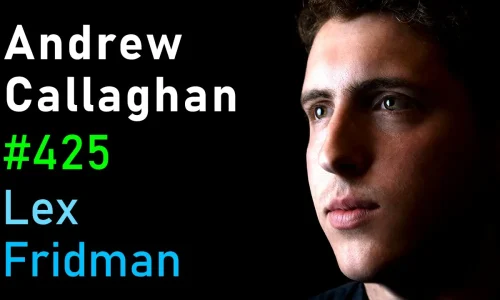See all Lex Fridman transcripts on Youtube

Andrew Callaghan: Channel 5, Gonzo Journalism, Controversy, and Politics | Lex Fridman Podcast #425
2 hours 51 minutes 59 seconds
🇬🇧 English

Omnivision Solutions Ltd
- Getting Started
- Create Transcript
- Pricing
- FAQs
- Recent Transcriptions
- Roadmap